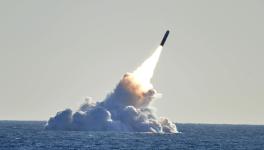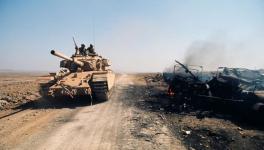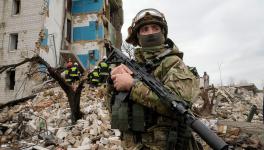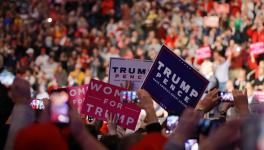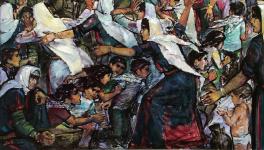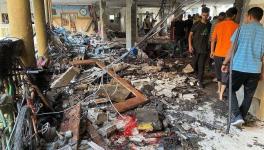Japan: Nagasaki Marks US Atomic Bombing Anniversary
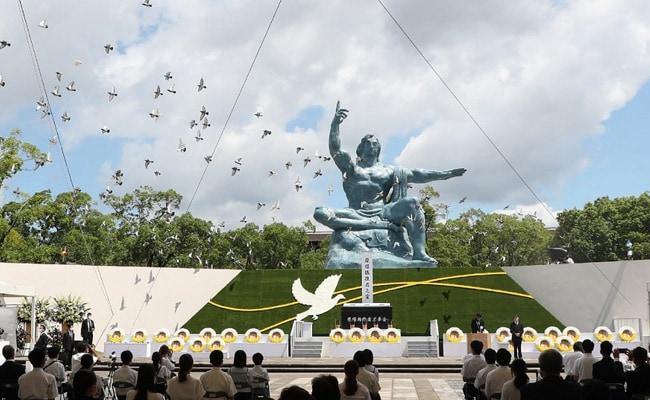
Nagasaki Day: A memorial service underway at the Nagasaki Peace Park in Japan. Image Courtesy: NDTV
Tokyo: Nagasaki paid tribute to the victims of the US atomic bombing 77 years ago on August 9, with the mayor saying the Ukraine war showed the world that another nuclear attack is not just a worry but "a tangible and present crisis".
The United States dropped the world's first atomic bomb on Hiroshima on August 6, 1945, destroying the city and killing 140,000 people. It dropped a second bomb three days later on Nagasaki, killing another 70,000. Japan surrendered on August 15, ending World War II and Japan's nearly half-century of aggression in Asia.
Mayor Tomihisa Taue, in his speech Tuesday at the Nagasaki Peace Park, said nuclear weapons can be used as long as they exist, and their elimination is the only way to save the future of humankind.
The Ukraine war and threat of nuclear weapons use came only a month after Russia and four other nuclear powers pledged in a statement that nuclear war should never be fought, Taue noted.
“This has shown the world that the use of nuclear weapons is not a groundless fear but a tangible and present crisis,” he said. The belief that nuclear weapons can be possessed not for actual use but for deterrence “is a fantasy, nothing more than a mere hope."
Participants, including diplomats from nuclear states, observed a moment of silence at 11:02 am, the moment the bomb exploded above the southern Japanese city on August 9, 1945.
Taue said discussions about nuclear disarmament and non-proliferation over the past decades have not been put into practice and trust in the 1968 Treaty on the Non-Proliferation of Nuclear Weapons has become “tenuous.”
“We must recognize that ridding ourselves of nuclear weapons is the only realistic way of protecting the Earth and humankind's future,” Taue said.
Taue urged Japan's government to exercise leadership in pursuing peace diplomacy that does not rely on nuclear deterrence.
Prime Minister Fumio Kishida said, “Even though we face a severe security environment, we must pursue the history of non-nuclear use and make Nagasaki the last place of nuclear attack.”
As of March, 118,935 survivors of the bombings are certified as eligible for government medical support, according to the health and welfare ministry. Their average age now exceeds 84.
Many survivors of the bombings have lasting injuries and illnesses resulting from the explosions and radiation exposure and have faced discrimination in Japan.
Get the latest reports & analysis with people's perspective on Protests, movements & deep analytical videos, discussions of the current affairs in your Telegram app. Subscribe to NewsClick's Telegram channel & get Real-Time updates on stories, as they get published on our website.










